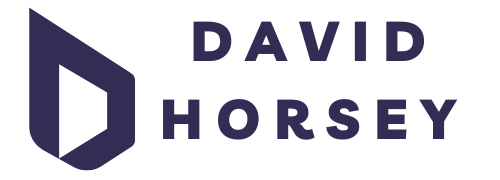Table of Contents
ToggleIn today’s fast-paced world, standing out from the crowd isn’t just a bonus—it’s a necessity. Personal branding isn’t just for influencers and entrepreneurs; it’s for anyone who wants to make a mark. Think of it as your unique fingerprint in a sea of identical resumes and LinkedIn profiles. The right personal brand can turn heads and open doors, making you the go-to expert in your field.
But let’s face it, building a personal brand can feel like trying to juggle flaming swords while riding a unicycle. It’s tricky, it’s chaotic, and yes, it can be downright scary. Yet with the right hustle and a sprinkle of creativity, anyone can master the art of personal branding. So buckle up and get ready to transform your online presence into a magnet for opportunities—because who wouldn’t want to be the superstar of their own show?
Understanding Personal Branding Hustle
Personal branding hustle involves actively cultivating and promoting a unique personal identity that resonates in professional settings. This dynamic process ensures visibility and relevance in a competitive landscape.
Definition of Personal Branding
Personal branding refers to the practice of individuals marketing themselves and their careers as brands. It encompasses how they present their skills, values, and personality to the public. Authenticity plays a vital role; individuals must showcase their true self. Representing personal beliefs and experiences develops a distinct image that stands out in their industry. Over time, building a personal brand creates consistent messaging through various platforms, including social media and professional networks.
Importance of a Personal Branding Hustle
A personal branding hustle is crucial for establishing credibility and attracting opportunities. It helps individuals differentiate themselves from peers, especially in crowded markets. Engaging in this hustle fosters connections with relevant audiences, increasing networking potential. Visibility remains a significant factor; potential employers and collaborators often seek individuals with a strong personal brand. Additionally, a well-defined brand can lead to consistency in professional communication, enhancing overall reputation. Cultivating this branding effort ultimately opens doors to numerous career advancements and personal growth opportunities.
Strategies for Building Your Personal Brand
Building a personal brand requires strategic efforts centered around unique strengths and social media engagement. Effective strategies can significantly enhance visibility and professionalism.
Identifying Your Unique Value Proposition
He or she must first identify what sets them apart. Consider specific skills, experiences, and values that contribute to their individuality. Focus on articulating this unique value proposition clearly. It helps to reflect on past experiences and achievements, allowing individuals to pinpoint their strengths. By understanding their distinct qualities, they can effectively communicate their brand message to their target audience. Documenting these insights aids in crafting a cohesive narrative that resonates with others. Engaging storytelling can showcase how they stand out in their industry.
Leveraging Social Media Platforms
Utilizing social media platforms is essential for amplifying a personal brand. Choose platforms that align with professional goals, such as LinkedIn for networking and Instagram for visual storytelling. Curate content that highlights expertise and engages followers. Posting regularly keeps the audience informed and interested. Additionally, interacting with others fosters community and enhances visibility. Thoughtful comments on industry-related posts cultivate connections with peers. He or she should also consider utilizing hashtags to increase reach. Measuring engagement metrics can help refine strategies for future content.
The Role of Networking in Personal Branding
Networking plays a vital role in building a personal brand. It creates opportunities for visibility and connection in professional circles.
Building Meaningful Connections
Meaningful connections enhance a personal brand’s credibility. Individuals should focus on cultivating relationships with industry peers and mentors. Attending events and actively participating in discussions can foster strong ties. Engaging authentically with others encourages mutual support. Joining professional groups fosters collaboration and knowledge sharing. Real connections often lead to opportunities for collaboration and partnership.
Utilizing Online and Offline Networking
Utilizing both online and offline networking strategies maximizes personal branding potential. Online platforms like LinkedIn offer access to broader networks. Sharing insights through articles or posts can attract like-minded professionals. Participation in webinars and virtual events enables interaction with industry experts. Offline networking, through in-person events, helps establish personal rapport. Combining both approaches allows individuals to reach diverse audiences and strengthen their brand presence.
Common Challenges in Personal Branding Hustle
Building a personal brand comes with distinct challenges. Recognizing these hurdles helps individuals navigate the branding journey more effectively.
Overcoming Self-Doubt
Self-doubt hinders progress in personal branding. Individuals often question their unique value and expertise. Gaining confidence in skills requires regular reflection and positive reinforcement. Acknowledging achievements, regardless of size, fosters a stronger sense of self-worth. Seeking feedback from trusted peers can offer insights. Engaging in personal development activities enhances self-esteem. Embracing a growth mindset empowers individuals to confront fears and explore new opportunities.
Navigating Negative Feedback
Negative feedback presents another challenge. Receiving criticism can be tough, especially in a competitive landscape. Responding to feedback constructively is crucial for growth. Individuals should differentiate between personal attacks and actionable insights to improve. Focusing on specific areas for enhancement allows for tangible progress. Discussions with mentors can provide perspective on handling criticism effectively. Building resilience to rejection strengthens a personal brand, ultimately leading to greater visibility and credibility.
Measuring Success in Your Personal Branding Journey
Tracking success in personal branding involves evaluating specific metrics that demonstrate growth and engagement. Effective measures provide clarity on what resonates with the target audience.
Key Performance Indicators for Personal Branding
Key performance indicators (KPIs) offer insight into the strength of a personal brand. Engagement rates on social media platforms highlight audience interaction levels. Website traffic reflects the brand’s influence and reach. Follower growth on professional networks such as LinkedIn signals increasing interest in your expertise. Additionally, the frequency of mentions in online discussions can reveal how often others refer to your brand.
Adapting Strategies Based on Feedback
Feedback is crucial for refining personal branding efforts. Gathering input from peers and mentors helps identify strengths and weaknesses. Adjusting strategies based on constructive criticism ensures alignment with audience preferences. Monitoring engagement metrics, like shares and comments, provides guidance on content effectiveness. Making iterative changes improves brand visibility and relevance over time. Regularly reassessing goals against feedback allows for ongoing growth and adaptation in a competitive landscape.
Embracing the personal branding hustle is more than just a trend; it’s a vital strategy for anyone looking to thrive in today’s competitive landscape. By actively cultivating a unique identity and showcasing individual strengths, one can enhance visibility and attract valuable opportunities.
Navigating this journey involves creativity resilience and a willingness to learn from feedback. As individuals refine their personal brands through strategic efforts and meaningful connections, they position themselves for career advancements and personal growth.
Ultimately the personal branding hustle not only differentiates one from peers but also builds credibility and fosters lasting relationships within professional networks. Investing in this process is essential for long-term success and relevance in any field.







